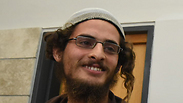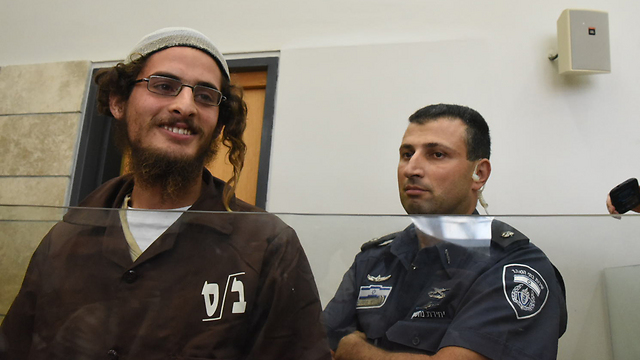
Photo: Avihu Shapira
Photo: Avihu Shapira
Former Shin Bet official Lior Akerman warned Sunday that the recent wave of administrative detentions dealt to Jewish activists suspected of terrorism may herald a significant shift in government policy, but won't solve the legal problem facing authorities in dealing with extremist Jewish groups in the West Bank.
Over the course of the last several days, Defense Minister Moshe Ya'alon has approved administrative detention (jail without trial) for three radical right-wingers: Meir Ettinger, the grandson of the late Jewish supremacist Rabbi Meir Kahane and a high-value target for the Shin Bet, Evyatar Slonim and Mordechai Meyer.
Akerman, a former brigadier-general who served as a division head in the Shin Bet, says that while administrative detention is an efficient policy that helps prevent attacks, it can't be used as tool en masse.
"It's a very efficient tool on the Palestinian front," he said. "Factually, there are few administrative detentions and if you take a small group, dominant and central, and put it behind bars, that dramatically decreases their activities."
But according to Akerman, administrative detention is not realistic as a permanent solution. Instead, he said the solution may be a change in legislation to speed up the legal process to bring strong cases against "hilltop youth," the radical fringes of the settler movement.
"The young people who run on the hills and were already involved in attacks against Arabs, torching cars and uprooting orchards and no one called their actions terror, receive motivation to continue," said Akerman. "We must define what it means to be involved in terrorism and not.
"We should have started enforcing the law against these guys - a group of fundamentalist ideological criminals that see no justice," continued Akerman. "They don't recognize the law of the land. If we don't give them a hit on the head it will continue to grow."
Akerman explained that legally, the imprisonment of Jews and Arabs are two different realities. "Every Arab who agrees to join Hamas and goes to a meeting in a mosque can be arrested and investigated for organizing terror - which doesn't exist among the Jewish population. Therefore, these guys are organizing, acting, going out, throwing fire bombs, beating Arabs, publishing incitement on internet blogs in ways you wouldn't believe - and that's not considered terror or a security risk in legal terms."
But the problems don't end there, explained Akerman. "This makes it really difficult for the Shin Bet to arrest them and even if they are arrested, it makes it hard to extend their prison time and makes it hard for the prosecution to present evidence to bring them to trial."
Akerman suggested that the act of networking with Jewish extremists be placed under a law against "unlawful association," similar to that in place against Arab terror organizations.
"This demands a very wide process, not by the Shin Bet who knows how to do what it knows to do, but by the attorney general, the prosecutors, the prime minister and the justice minister."


















